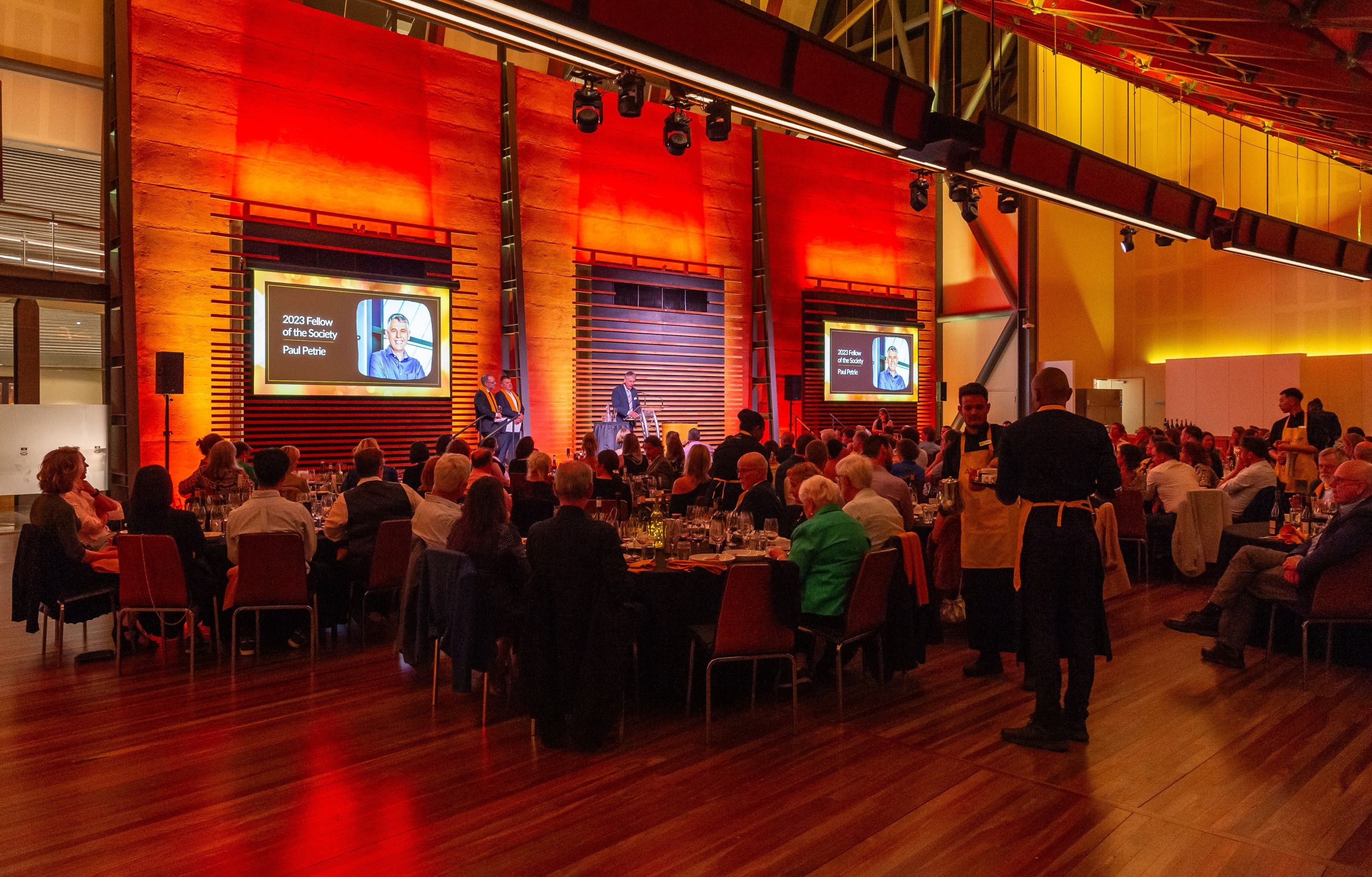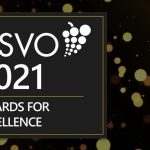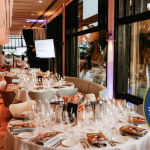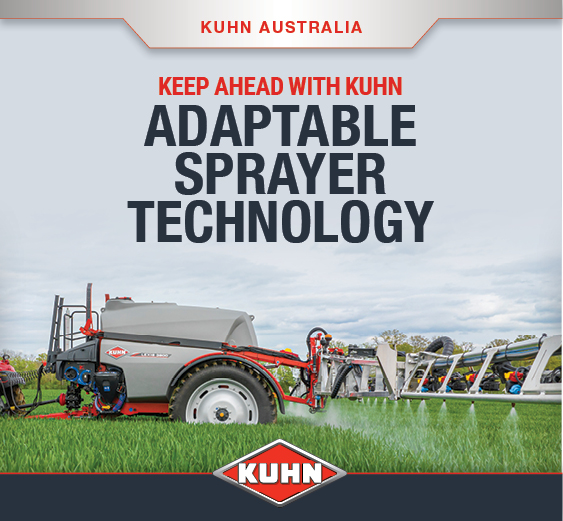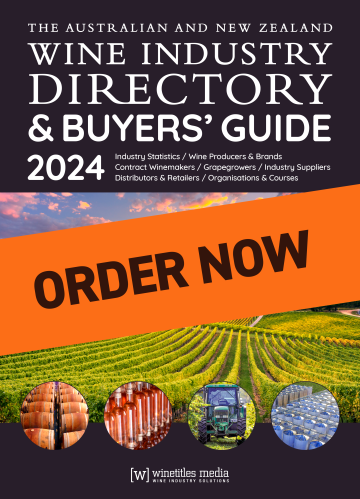Photo: John Krüger
The recipients of the Australian Society of Viticulture & Oenology’s 2023 Awards for Excellence were announced last night at the National Wine Centre in Adelaide.
The Awards for Excellence are judged by a select committee of industry peers who are themselves distinguished leaders in the fields of viticulture or oenology.
The Winemaker of the Year award was presented to Mark O’Callaghan, managing director of Victorian-based Wine Network Consulting; Dr Cath Kidman, technical viticulturist with Wynns Coonawarra Estate, received the award for Viticulturist of the Year; and Professor Andrew Clark, a wine chemist from Charles Sturt University’s Gulbali Institute, received the Wine Science & Technology Award.
“The 2023 ASVO Award winners demonstrate outstanding professional excellence and are recognised for the significant contribution they make to the wine industry,” said ASVO president Andy Clarke. “They do this by developing new knowledge, inspiring the next generation, and fostering an environment where excellence prevails.
“My sincere congratulations are extended to this year’s award winners, Mark O Callaghan, Cath Kidman and Andrew Clark who embody all of these values and more.”
Judges for the Winemaker of the Year award said Mark O’Callaghan, based in Healesville, Victoria, was their unanimous choice. Beyond his work at Wine Network Consulting, Mark is an exceptional communicator and educator, actively sharing his extensive knowledge with industry members, the panel said. As well as writing articles for the Wine and Viticulture Journal, published by Winetitles Media, O’Callaghan has also presented at seminars and webinars at Australian Wine Industry Technical Conference and for the Australian Wine Research Institute and ASVO. Among his core areas of interest are winery modernisation encouraging improvements in energy, water, labour and general input costs and safety, disaster resilience, customer engagement and wine quality.
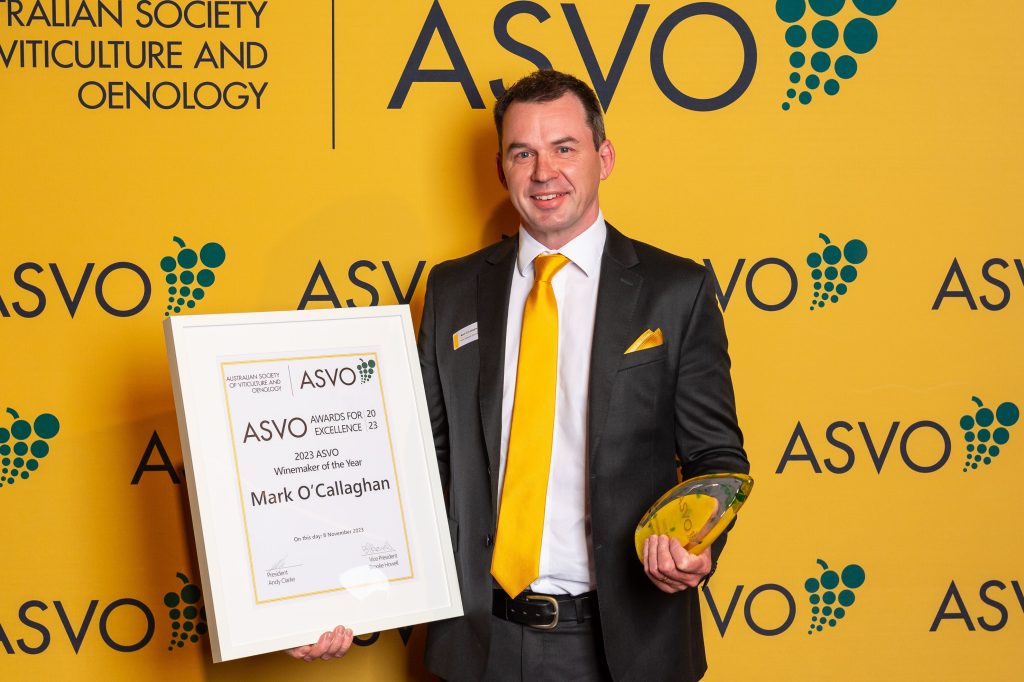 Winemaker of the Year Mark O’Callaghan. Photo: John Krüger
Winemaker of the Year Mark O’Callaghan. Photo: John Krüger
“When you’re in a community with exemplars like previous winners Sarah Crowe and Ed Carr, it never even crossed my mind that I would be on the radar for Winemaker of the Year,” O’Callaghan said. “I thought it must have been an email scammer when ASVO first contacted me. I occupy a different space in winemaking and some of the best work we do no one ever knows about, so this really was an unexpected surprise.”
The judging panel for Viticulturist of the Year described Cath Kidman as “a champion in her field” as a technical viticulturist who is “respected and recognised nationally”. “She is a fantastic role model and mentor to up and coming viticulturists, supports PhD students as a supervisor, and an active advocate for Women in Wine.
“Applying a science-based yet practical approach, Cath is generous in sharing her expertise and cutting-edge trial work at Wynns Coonawarra (including on epigenetic vine responses, infrared thermal imaging, and virus elimination) to the wider Australian wine growing community to enhance a sustainable future for all vineyard owners,” the panel said.
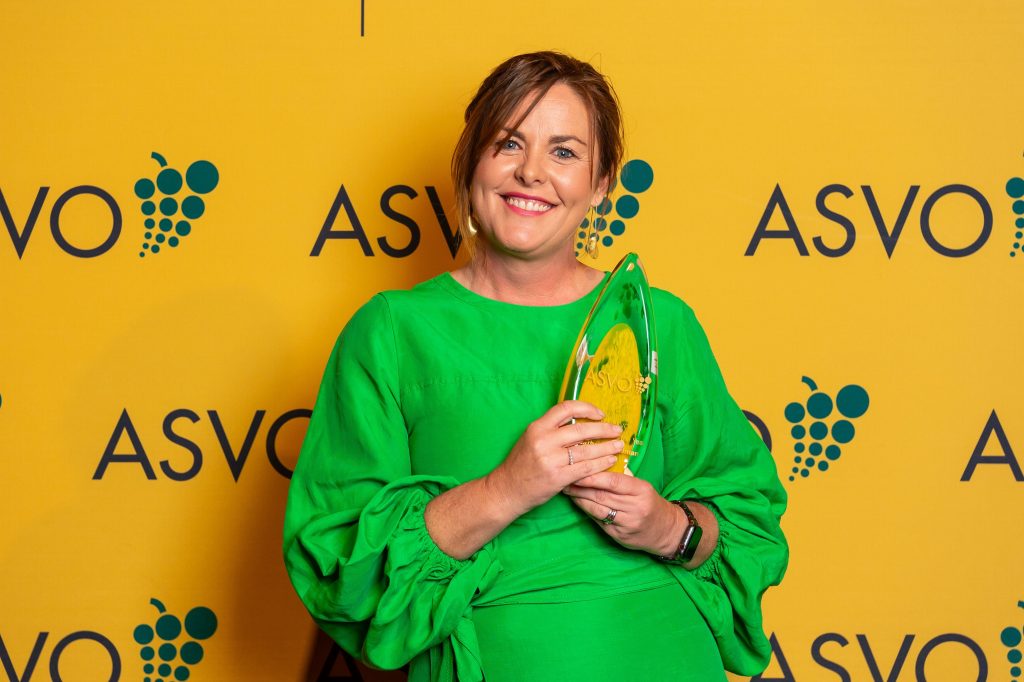
“To be the recipient of the ASVO Viticulturist of the Year is quite frankly an incredible feeling!” Kidman said. “I am a proud advocate of the ASVO and, therefore, to be recognised by the society for the work I do in viticulture is a tremendous feeling and I’m very grateful for this award.”
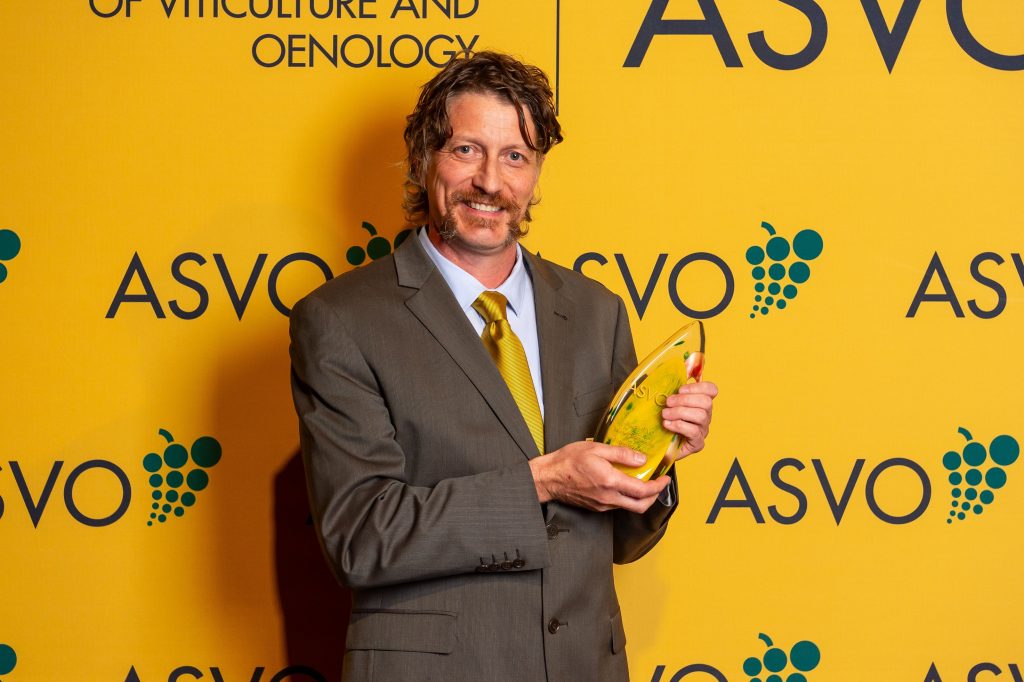
Winner of the Wine Science & Technology Award Andrew Clark. Photo: John Krüger
The presentation of the Wine Science and Technology award to Andrew Clark acknowledged his development of innovative analytical practices at the Gulbali Institute and Charles Sturt University in Melbourne, the judges for this award noted.
“Specifically, Andrew has developed novel methodologies for the measurement of different metal forms in wine. His work has created new knowledge, analysis techniques and wine production approaches relevant to the role of metal ions (especially copper) in the stability and ageing of wine. Given his long academic career at Charles Sturt University, Professor Clark has taught wine chemistry to a significant portion of Australia’s bachelor graduates in oenology.”
“I’m honoured to be considered for this award,” Clark said. “I have a great passion for conducting wine chemistry research, alongside my research team and collaborators, and to be involved in the education of the enthusiastic next-generation winemakers and viticulturists.”
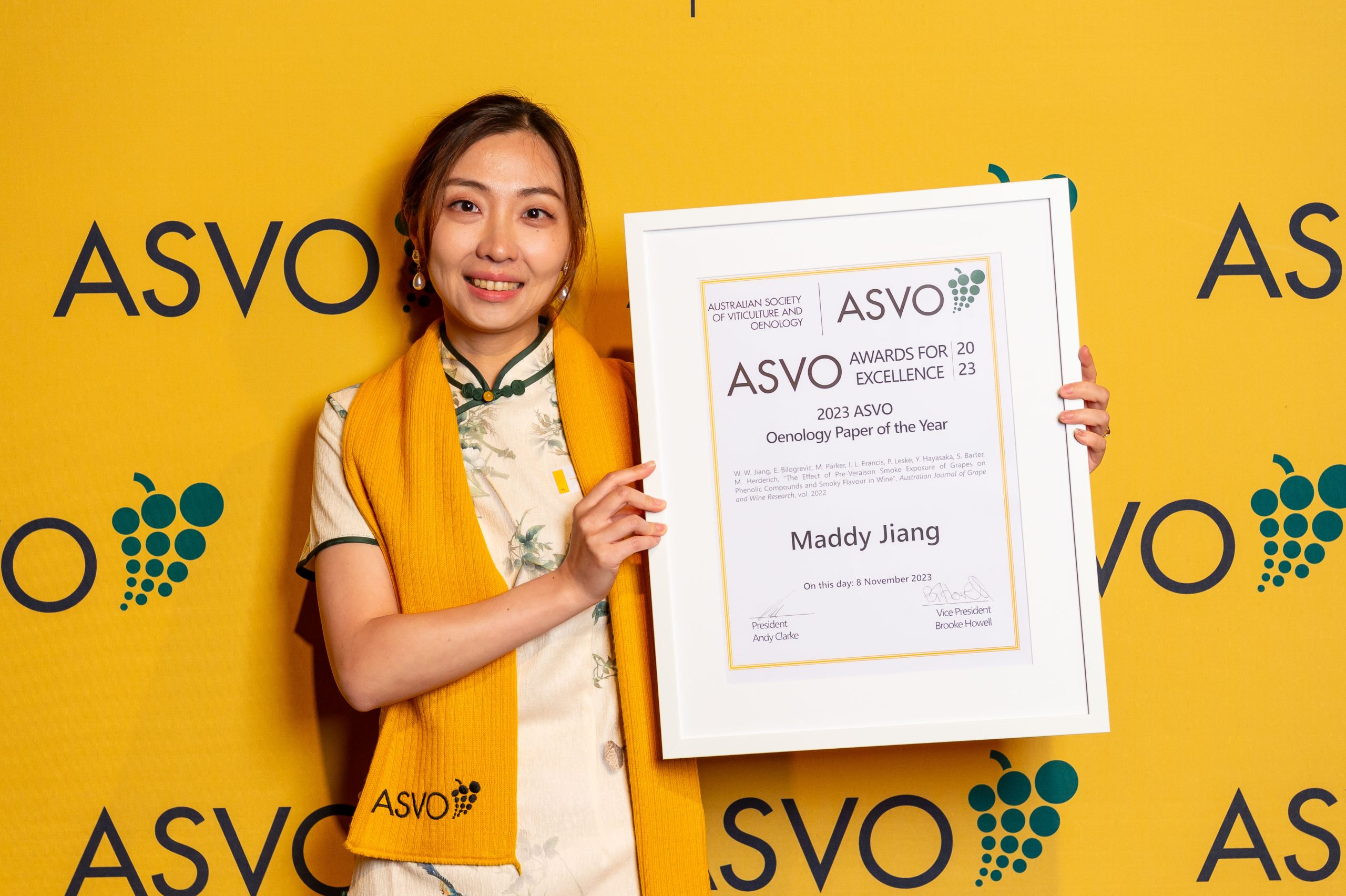
Also presented at last night’s awards was the two top technical wine research papers published in the ASVO’s Australian Journal of Grape and Wine Research in 2023.
The 2023 Oenology Paper of the Year Award went to Maddy Jiang, a senior scientist at the AWRI, who was lead author of the paper ‘The effect of pre-veraison smoke exposure of grapes on phenolic compounds and smoky flavour in wine’.
“While previous papers have explored the impact of smoke post-veraison, this paper focuses on the impacts pre-veraison,” the judging panel said. “Before this work, grapegrowers thought that grapes were not susceptible to smoke taint in early stages of development, but this is now shown not to be the case, so any exposure at all needs to be assessed for the risk of smoke taint. It is not the news that grape growers wanted, but it arms them with real information on which to base decisions about testing and further investment in the crop.”
The panel said the paper had immediate benefit to the wine industry in Australia and internationally. “It is highly topical with the latest prediction of a hot dry summer in south-eastern Australia and will allow better decisions to be made after any smoke-tainting incident.”
The 2023 Viticulture Paper of the Year was awarded to Dr Cristina Lazcano, of the University of California in Davis USA, for her work on ‘Assessing the short-term effects of no-till on crop yield, greenhouse gas emissions, and soil C and N pools in a cover-cropped, biodynamic Mediterranean vineyard’. The paper was published as a special issue for the 18th Australian Wine Industry Technical Conference at which Lazcano presented.
Lazcano’s paper showed that using a no tillage regime in vineyards is feasible for climate mitigation. The judging panel said the paper was important because it improves understanding of the soil ecological interactions responsible for carbon sequestration as well as nutrient availability and nutrient retention in agroecosystems.
“This is such an important topic globally, and this paper was a standout,” the judges said.
The ASVO also announced its Fellows for 2023. Fellows are elected by the board of the ASVO from its membership. The award acknowledges a recipient’s particularly outstanding and meritorious contribution to the grape and wine industry. The criteria for the award include making a major contribution in an industry, scientific, educational or ASVO role. Recipients must have also been a member of the ASVO for at least 10 years.
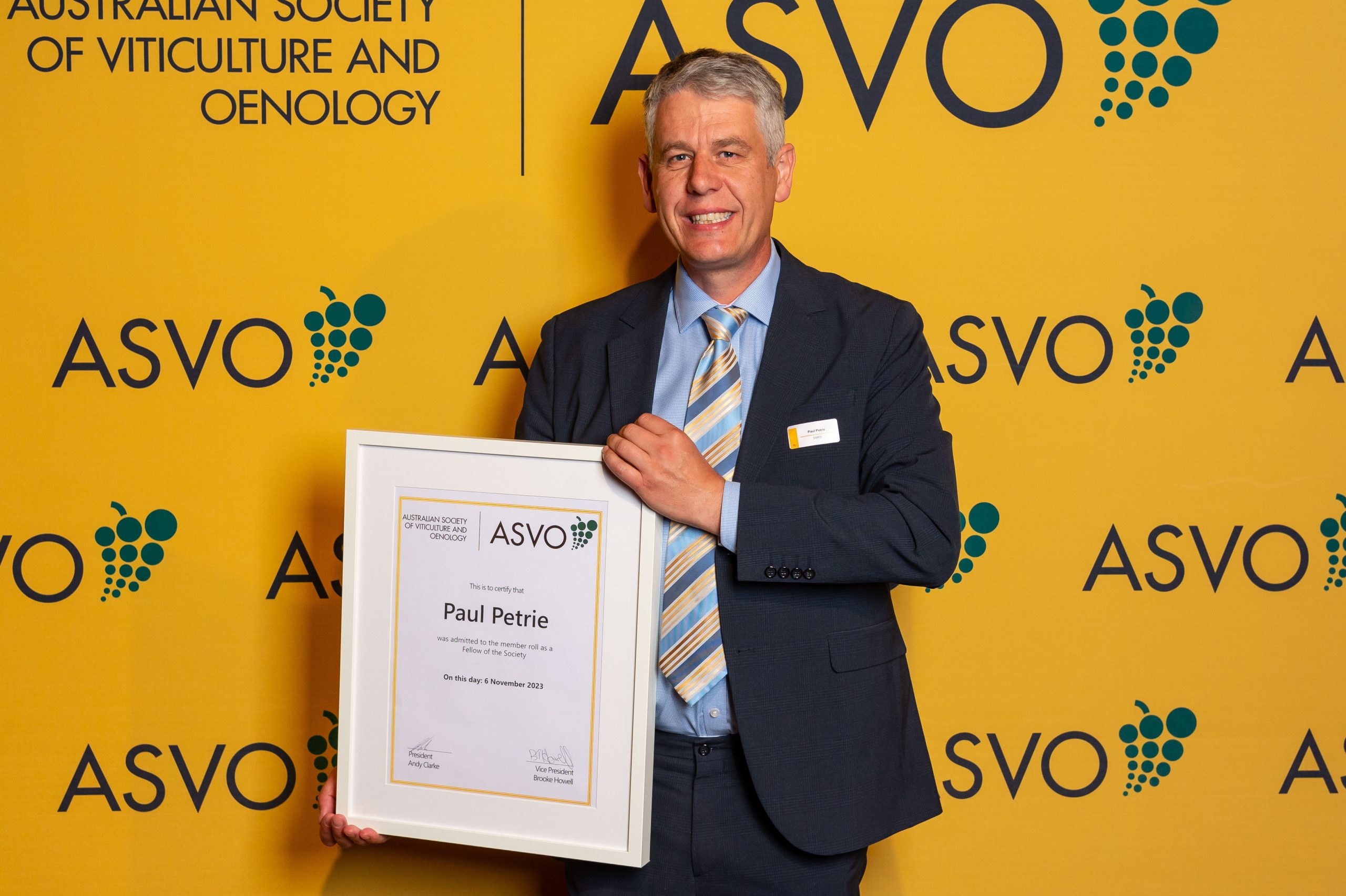
The Fellows for 2023 were Steve Guy, former general manager of compliance and trade at Wine Australia, and Paul Petrie, principal viticultural scientist and program leader of the Irrigated Crops group at the South Australian Research and Development Institute, Affiliate Professor at the University of Adelaide, Associate Professor at Flinders University and Adjunct Associate Professor at the University of New South Wales.
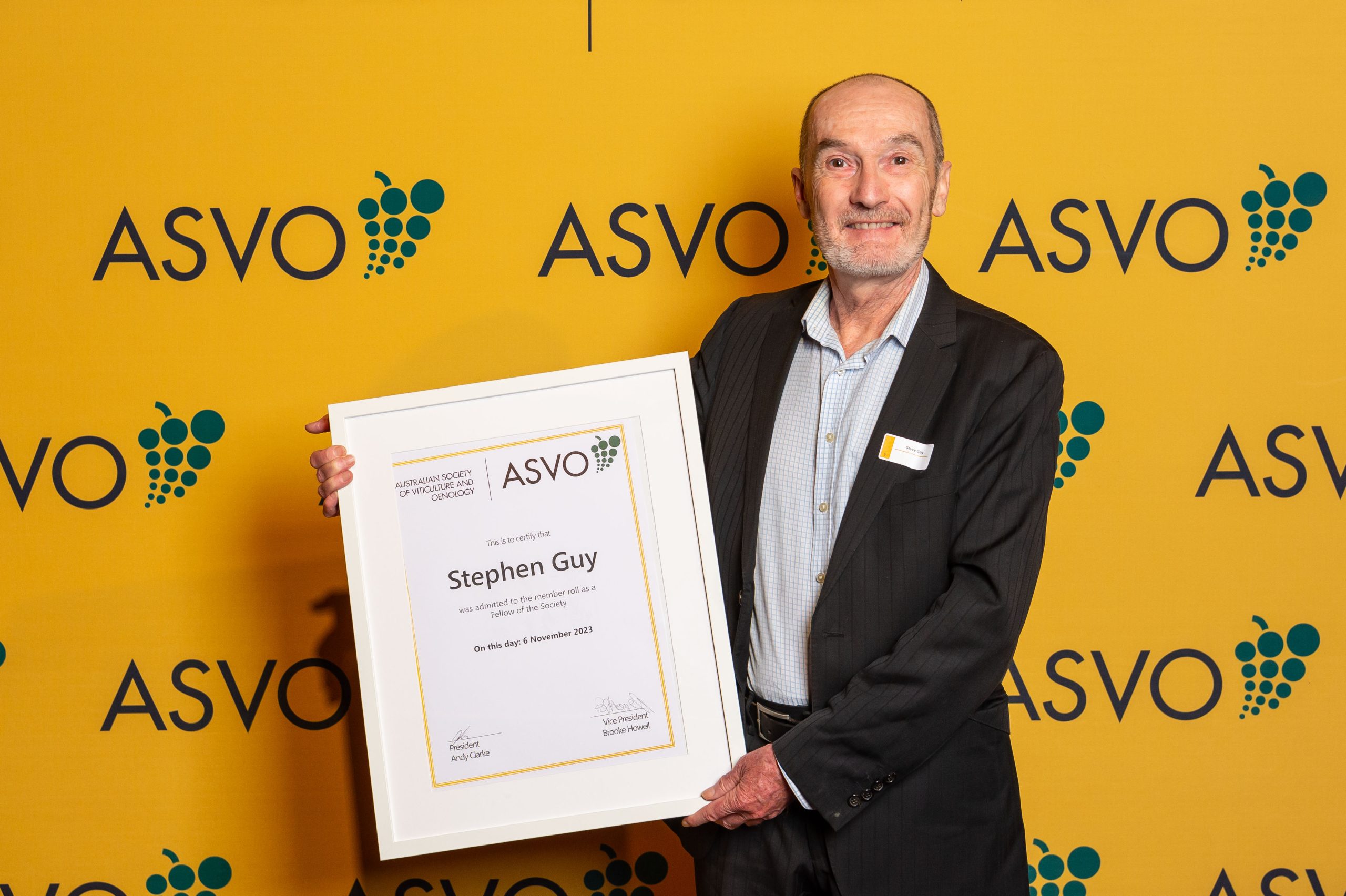
Paul Petrie has published more than 50 scientific publications in viticulture and a wide range of aspects of vine physiology. He sat on the ASVO’s board of directors for six years, serving as vice president in 2010 and 2011, president from 2012 to 2014, and secretary in 2015. He also served on numerous viticulture and oenology seminar organising committees, including the AWITC conference planning committee and the advisory sub-committee of the Australian Journal of Grape and Wine Research.
Petrie leads a viticultural research program aiming to improve the resilience of Australian vineyards; improving their productivity and ability to adapt to climate change.
Over the past 20 years Steve Guy has been instrumental in improving the business and market access landscape for Australian wine exporters, representing the interests of the wine sector within international wine trade and regulatory fora, and by reforming and championing the domestic regulatory process. His work as chair of the Economic Sustainability committee of FIVS, the Paris-based wine trade group, resulted in him receiving the Finkle award for contribution to international trade in 2016.
As general manager of compliance and trade with Wine Australia, Guy provided technical advice to the governments of Australia and the European Union when negotiating the bilateral agreement on trade in wine which was successfully completed in 2011. He was also part of the Australian government delegation that concluded agreements on winemaking practices and wine labelling with the eight parties of the World Wine Trade Group.
Are you a Daily Wine News subscriber? If not, click here to join our mailing list. It’s free!
